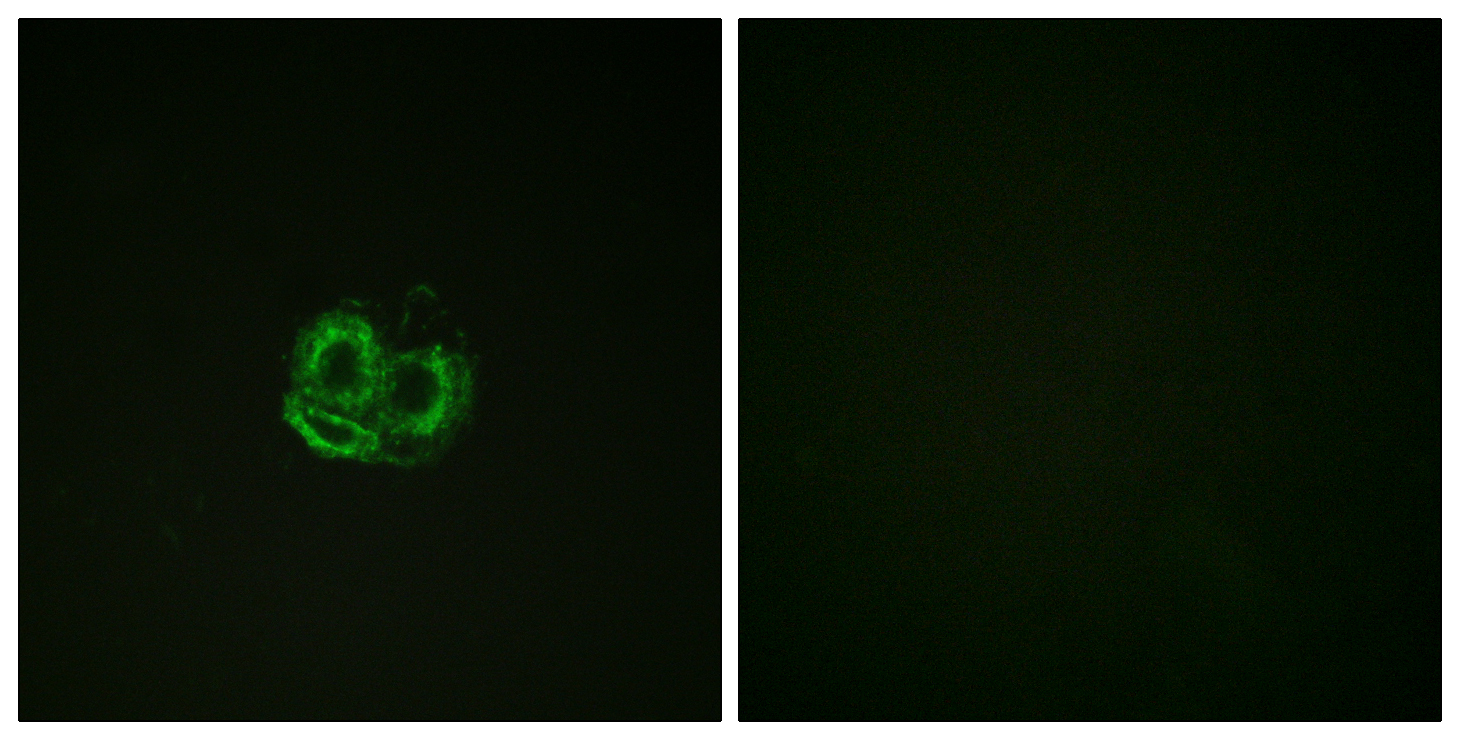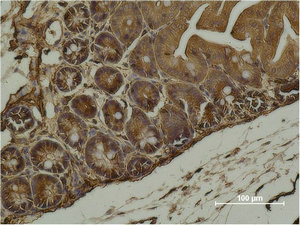alpha Smooth Muscle Actin antibody [1A4] (FITC)
GTX72531
ApplicationsFlow Cytometry, ImmunoFluorescence, ImmunoCytoChemistry, ImmunoHistoChemistry, ImmunoHistoChemistry Frozen, ImmunoHistoChemistry Paraffin
Product group Antibodies
ReactivityGuinea Pig, Human, Mouse, Primate, Rabbit, Rat
TargetACTA2
Overview
- SupplierGeneTex
- Product Namealpha Smooth Muscle Actin antibody [1A4] (FITC)
- Delivery Days Customer9
- Application Supplier NoteFor IF: Use at 10-20 microg/ml for 2 hours at room temperature. For IF: paraffin-embedded or frozen sections, as well as on cell smears can be used. Optimal dilutions/concentrations should be determined by the end user.
- ApplicationsFlow Cytometry, ImmunoFluorescence, ImmunoCytoChemistry, ImmunoHistoChemistry, ImmunoHistoChemistry Frozen, ImmunoHistoChemistry Paraffin
- CertificationResearch Use Only
- ClonalityMonoclonal
- Clone ID1A4
- ConjugateFITC
- Gene ID59
- Target nameACTA2
- Target descriptionactin alpha 2, smooth muscle
- Target synonymsACTSA, SMDYS, actin, aortic smooth muscle, actin, alpha 2, smooth muscle, aorta, alpha-cardiac actin, cell growth-inhibiting gene 46 protein
- HostMouse
- IsotypeIgG2a
- Protein IDP62736
- Protein NameActin, aortic smooth muscle
- Scientific DescriptionThis gene encodes one of six different actin proteins. Actins are highly conserved proteins that are involved in cell motility, structure, integrity, and intercellular signaling. The encoded protein is a smooth muscle actin that is involved in vascular contractility and blood pressure homeostasis. Mutations in this gene cause a variety of vascular diseases, such as thoracic aortic disease, coronary artery disease, stroke, and Moyamoya disease, as well as multisystemic smooth muscle dysfunction syndrome. [provided by RefSeq, Sep 2017]
- ReactivityGuinea Pig, Human, Mouse, Primate, Rabbit, Rat
- Storage Instruction2°C to 8°C
- UNSPSC41116161







